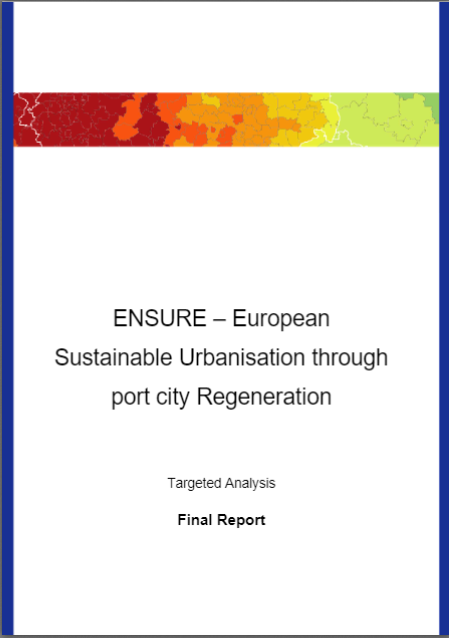Port cities have historically been an essential element of European society and economy. Despite overall growth in maritime transport, many European port cities are experiencing the relocation of port-related activities from central areas to other locations. The loss of this economic activity is leaving deteriorating inner city areas. Today brownfield waterfront sites are strategically valuable but their development can be hugely constrained by costs of decontamination treatment, plot fragmentation and complex landownership.
The challenge of port city regeneration has been a topic of debate in several Committee of the Region workshops in recent years and the subject of at least two policy briefings to the European Parliament in November 2016 and May 2017. Globalisation offers an opportunity for port cities to use these old industrial waterfront locations to revive their economy, to strengthen their magnetic pull, to become hubs of innovation and to act as leading examples of sustainable urban planning, ensuring their long-term competitiveness as economic drivers within the EU (European Parliament, May 2017). With the ability to tackle some of the constraints, port cities are ideally positioned to act as beacons of sustainable [1] urbanisation, meeting the global development challenges associated with increasing urbanisation (70% global population will be urban by 2050).
Smaller cities with a thriving economy and high quality of life are often the location of choice for millennials across Europe. The sustainable regeneration of port cities can drive EU growth in the modern economy while leading the way in urban liveability.
The ENSURE targeted analysis will learn from port cities which have had success in the regeneration of their former port areas and will help to better define the contribution which regenerated smaller port cities can make to the collective socio-economic health of the EU. This activity will result in a unified repository of the critical enabling elements of transformation and development within smaller European port cities focused on funding, knowledge, regulation, citizen engagement, governance and other catalysts. It will build the evidence base for policy making to support the redevelopment of port city areas across Europe. There is no one size fits all but with a unified repository, cities can more easily determine their own solution. There may also be opportunities to develop critical mass between smaller cities through collaboration in certain areas.
The ENSURE targeted analysis shall focus on four small-medium cities that are reflective of Europe’s territorial diversity but share the same challenges and opportunities of implementing a vision to their port city regeneration. The city authorities of Cork, Aalborg, Catania and Brest face major challenges in securing regeneration and re-integrating old port areas back into the city DNA. Challenges include preparing planning strategies; staff resource and capacity building (Cork) of staff to deliver change; land ownership (Cork); unlocking necessary investment (Cork, Aalborg); coordination of multiple stakeholders (all); place making (all); re-using built heritage assets (Brest); and creating effective governance models (Brest, Aalborg).
Source: ESPON
Re-sources
